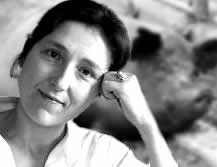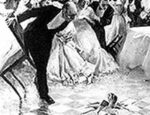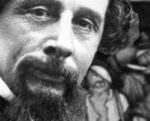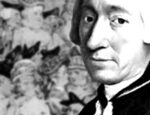Description
 Read Marie Darrieussecq’s Pig Tales (Truismes, 1996), sub-titled in English A Novel of Lust and Transformation. The female first-person narrator is a sex-industry worker who turns into a sow. The novel examines closely the objectification of working-class women’s bodies, and the difficulty of avoiding participation in the sex industry for women with little education and few alternative means of acquiring a livelihood. Indeed, the novel emphasizes the difficulty finding a voice in society faced by anyone whose social value is assessed solely on their physical assets—in sexual or any other kind of bodily labour: it is ‘difficult to write one’s story when one lives in a pigsty—when one has, in fact, become a sow.’ Yet such is the narrator’s extraordinary adventure in this terribly sensual fable.
Read Marie Darrieussecq’s Pig Tales (Truismes, 1996), sub-titled in English A Novel of Lust and Transformation. The female first-person narrator is a sex-industry worker who turns into a sow. The novel examines closely the objectification of working-class women’s bodies, and the difficulty of avoiding participation in the sex industry for women with little education and few alternative means of acquiring a livelihood. Indeed, the novel emphasizes the difficulty finding a voice in society faced by anyone whose social value is assessed solely on their physical assets—in sexual or any other kind of bodily labour: it is ‘difficult to write one’s story when one lives in a pigsty—when one has, in fact, become a sow.’ Yet such is the narrator’s extraordinary adventure in this terribly sensual fable.
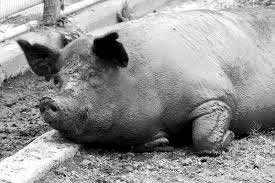 The pig-lady has a generalized historical relationship, as the subject of metamorphosis, with Ovid’s sexploited heroines, and an inverted one with Homer’s Circe in the Odyssey, a sexually exciting figure who turns men into swine. But by far her most specific relationship is with the Lucius of Apuleius’ Metamorphoses, or Golden Ass— a foundation text in the history of the western novel (on which topic Darrieussecq used to lecture at the University of Lille).
The pig-lady has a generalized historical relationship, as the subject of metamorphosis, with Ovid’s sexploited heroines, and an inverted one with Homer’s Circe in the Odyssey, a sexually exciting figure who turns men into swine. But by far her most specific relationship is with the Lucius of Apuleius’ Metamorphoses, or Golden Ass— a foundation text in the history of the western novel (on which topic Darrieussecq used to lecture at the University of Lille).
The relationship between Apuleius’ ass-hero and Darrieussecq’s pig-heroine has excited less critical attention than her more oblique references to individuals in Kafka and Orwell, but it is revealed in several features. These include the application of potions, the treatment of Christianity as a bizarre mystery cult, the vision of political dystopia, the physical sufferings undergone by the narrator, her experience of bestial sex from the animal’s perspective, and even the Latin yelled at her by the religious fanatic in the lunatic asylum, ‘vade retro, vade retro’. The female middle-class writer (an avowed feminist) here makes her point about the male treatment of working-class women’s bodies by inscribing her own subjectivity on one of the paramount classical foundation texts of subjectivity in fiction.

